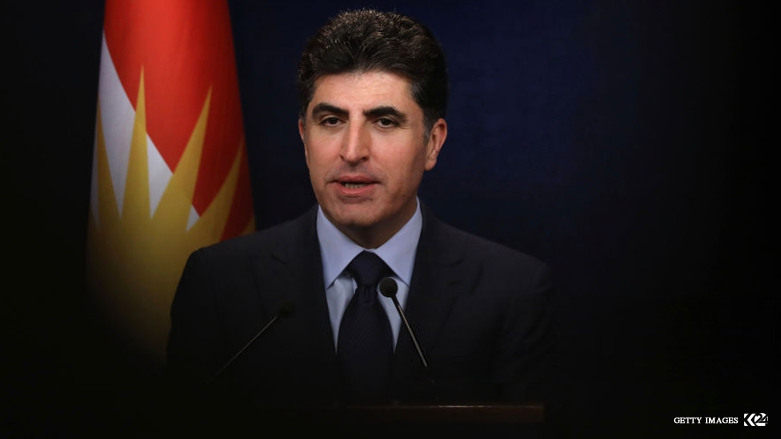Kurdistan President welcomes reform but rejects constitutional changes affecting gov. system

ERBIL (Kurdistan 24) – Kurdistan Region President Nechirvan Barzani on Thursday welcomed potential amendments to the Iraqi constitution that would aim to improve the livelihoods of the public but rejected ones that could affect the country’s federal system.
Amid flaring violent protests, calls for changes to be made to the country’s Constitution have strengthened, with the national parliament recently forming a committee to work on amendments the public would later vote on in a referendum.
Demonstrations began early in October, with participants reiterating long-ignored demands for an improvement to their financial situation and for the government to address the county’s crippling corruption—of which Iraq has one of the highest levels in the world.
As protests resumed last Friday after a two-week pause, demands grew for a complete overhaul of the government and ouster of the ruling political elite, who demonstrators believe have neglected their duties of serving the public.
On Wednesday, the Kurdistan Regional Government (KRG) stated it supported the legitimate demands of the protesters but stood against the use of violence, “no matter which side it comes from.” It also welcomed purported reform efforts by Iraqi Prime Minister Adil Abdul-Mahdi in response to protester demands.
“Prime Minister Barzani called for restraint from all sides, reiterating his hope that a peaceful resolution can be found that preserves the progress made since the country overcame war,” the KRG website reported. The Kurdish leader denounced, however, “efforts to push forward unconstitutional changes to the federal system of Iraq,” in reference to protesters' demands for a complete overhaul of the government.
During a Lawyers’ Union congress in the Kurdistan Region capital of Erbil, President Barzani delivered similar remarks, affirming “we will not oppose any amendments that aim to improve the livelihoods and governance of Iraq.”
“But, any amendment that creates inequality and damages democracy and federalism goes against the people of Kurdistan and Iraq and will in no way reflect the demands of protesters.”
President Barzani also argued that the main issue plaguing Iraq is not the legal document itself, which was the foundation of a new Iraqi republic after the fall of the former regime in 2003, but “ignoring the Constitution.”
Erbil has long complained that Baghdad has slacked in ratifying constitutional articles that are of mutual concern, with the most notable among them being Article 140, which stipulated that the status of areas of contested control by the two governments must be settled before 2007. This has yet to be done.
Read More: Kirkuk official alleges ‘Arabization’ as province gains new Arab voters in 2019
Since then, claims of forced demographic change have been commonplace in many of these areas, among them Kirkuk Province, which historically has had a Kurdish majority population.
However, after Iraqi forces and Iran-backed Hashd al-Shaabi militias pushed Kurdish Peshmerga forces from Kirkuk in late 2017, allegations of the forced displacement of Kurds began to come up as more and more cases emerged where landowners were told to vacate by ethnically Arab claimants who were in possession of Saddam Hussein-era documents.
Several Kurdish officials have accused the ethnically Arab acting governor that was installed at the time, Rakan Saeed, of facilitating ethnically divisive policies in efforts to tip the balance against Kurds, who have a majority of seats in the provincial council and, as a result, are entitled to choose Kirkuk’s governor.
Editing by Nadia Riva
